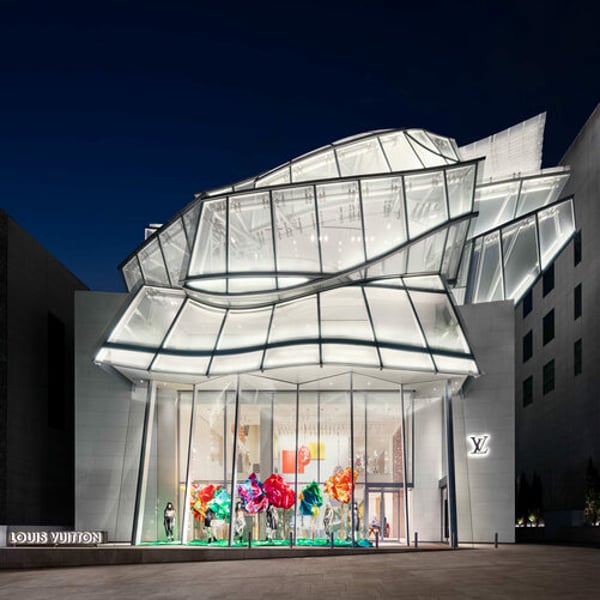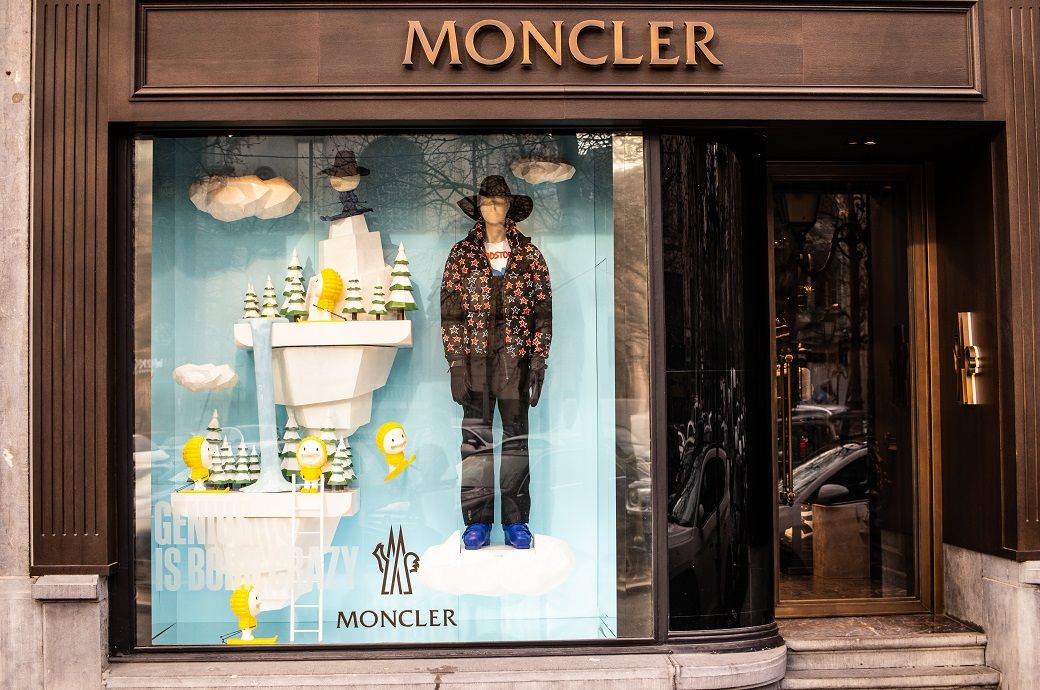Fashion
LVMH expands in South Korea as luxury demand shifts from China and the US

By
Bloomberg
Published
September 25, 2025
LVMH is ramping up its expansion in South Korea, with the luxury conglomerate seeking to diversify its global footprint amid geopolitical and economic uncertainties that are clouding the consumer spending outlook in the United States and China.
The group’s two largest fashion labels — Louis Vuitton and Christian Dior — are both planning to expand their flagship maison-style stores in Seoul’s Cheongdam district within the next few years, according to people familiar with the matter who asked not to be identified discussing private deliberations. Dior’s revamp may take place as early as 2027 and is expected to feature a permanent restaurant, according to the report.
LVMH Moët Hennessy Louis Vuitton SE’s watch and jewelry house Bulgari is reportedly eyeing its first flagship location in South Korea, as the group strengthens its regional presence. Meanwhile, Tiffany & Co. is expected to open a flagship store in Seoul’s Cheongdam district in 2027, according to the same sources.
A representative for LVMH did not respond to a request for comment.
South Koreans’ enduring love for luxury, combined with a resilient economy and rising consumer confidence, has made the country a bright spot for top industry names amid an increasingly uncertain global retail landscape. Louis Vuitton, Hermès and Chanel posted almost 10% growth in their combined sales in the country last year, reaching $3.3 billion, according to government data.
Beyond domestic shoppers, a surge in visitors — mainly from China and Japan — along with the weaker won, has further boosted sales. Tourist spending rose by about a third to a record 9.26 trillion won ($6.6 billion) last year, according to the Korea Herald.
At the same time, China’s premium goods market shrank the most in a decade last year, while U.S. import tariffs have prompted fashion houses to hike prices, potentially driving wealthy shoppers to buy luxury items abroad. Even Japan, where a weak yen had fueled a boom in luxury spending, is now showing signs of a slowdown.
LVMH, founded by billionaire Bernard Arnault, has already been expanding its presence in South Korea. Celine opened its first boutique there in December last year, and Fendi launched its first flagship in 2023.
Other luxury groups are also betting on the South Korean market. Cie Financière Richemont SA — which saw its sales rise 20% in the country for the financial year ended in March — opened a new flagship for Swiss watchmaker Vacheron Constantin in Seoul in June. The store features Korean artworks, a digital archive, a private lounge, and a dedicated space for exhibitions and events. Hermès also relocated and expanded its flagship in the capital, reopening the location in August.
Fashion
Bangladesh commerce minister seeks Chinese investment in jute sector
Fashion
Sri Lanka’s apparel exports down 2.6% in January 2026

Total apparel shipments fell by 2.66 per cent year on year to $425.44 million in January 2026, compared with $437.07 million in the corresponding month of 2025. The performance underscored uneven global demand conditions that continue to influence sourcing patterns and order flows for Sri Lankan manufacturers.
Sri Lanka’s apparel exports declined 2.66 per cent YoY to $425.44 million in January 2026 amid weak global demand.
Shipments to the US and EU softened, while the UK remained stable with slight growth.
Other markets saw sharper contraction.
JAFF highlighted DCTS benefits and tariff changes while suggesting diversification and efficiency to sustain competitiveness.
Exports to the United States, the country’s largest market, decreased by 2.73 per cent to $165.11 million, while shipments to the European Union excluding the United Kingdom, declined by 1.93 per cent to $126.99 million. In contrast, exports to the UK remained broadly stable, rising marginally by 0.23 per cent to $61.71 million. Apparel shipments to other markets dropped more sharply by 6.07 per cent to $71.63 million.
JAAF noted that the UK’s steady performance offers a constructive signal for the sector, particularly as the revised Developing Countries Trading Scheme (DCTS), effective January 1, 2026, is expected to enhance sourcing flexibility and strengthen Sri Lanka’s competitive position in the British market.
The industry body also highlighted the introduction of a uniform 10 per cent temporary tariff in the US market as a relatively supportive development, reducing the impact of previously higher country-specific rates and providing greater short-term pricing predictability for exporters.
Commenting on the January outcome, JAAF said the moderate decline reflects ongoing volatility in global demand. The association emphasised that the industry remains committed to reinforcing resilience through market diversification, product innovation and operational efficiency, while collaborating with stakeholders to sustain Sri Lanka’s standing as a reliable apparel sourcing destination.
Fibre2Fashion News Desk (KUL)
Fashion
Italy’s Moncler FY25 revenue reaches $3.69 bn with resilient margins

Profitability remained robust despite a more challenging trading backdrop. Group EBIT stood at €913.4 million, broadly stable year on year (YoY), translating into a 29.2 per cent margin versus 29.5 per cent in FY24. Net profit reached €626.7 million compared with €639.6 million a year earlier, reflecting higher net financial expenses, while maintaining a 20 per cent margin.
Moncler has reported revenues of €3.13 billion (~$3.69 billion) in FY25, up 3 per cent at constant exchange rates, with net profit of €626.7 million (~$739.5 million).
Asia led regional growth, while DTC channels strengthened across brands.
Q4 revenues rose 7 per cent, driven by robust Moncler and Stone Island performance, as the group prepares for continued investment and leadership transition.
Regionally, the group recorded strong momentum in Asia, where revenues rose 7 per cent at constant exchange rates to €1.42 billion, supported by demand in China and Korea and a recovery in tourist flows. The Americas increased 5 per cent to €391.1 million, whereas Europe, Middle East and Africa (EMEA) declined 3 per cent amid subdued tourism-related traffic, Moncler said in a press release.
Channel performance highlighted the continued shift towards direct engagement. Moncler’s direct-to-consumer (DTC) revenues rose 4 per cent to €2.36 billion, accounting for nearly 87 per cent of brand sales, while wholesale declined 4 per cent as the group continued to enhance distribution quality. Stone Island’s DTC channel expanded 11 per cent to €226.4 million, whereas wholesale decreased 4 per cent.
The group’s financial position strengthened further, with net cash reaching €1.46 billion at year-end after dividend payments of €353.2 million. The board proposed a dividend of €1.4 per share and approved the consolidated sustainability statement.
Remo Ruffini, chairman and CEO of Moncler, said: “Moncler and its board of directors wish to express their most sincere thanks to Gabriele Galateri di Genola for his dedication and the highly valuable contribution he has made throughout his more than ten-year term of office. His significant experience, the vision developed over many years in senior leadership positions at leading industrial and financial organisations, as well as his constant commitment to good governance, have represented a key point of reference for our work. With gratitude, we extend our best wishes to Gabriele Galateri di Genola for the future.”
In the fourth quarter (Q4), the group delivered accelerated momentum, with revenues rising 7 per cent at constant exchange rates to €1.29 billion (~$1.52 billion). Moncler brand revenues reached €1.17 billion, up 6 per cent, while Stone Island posted €123.1 million, surging 16 per cent with double-digit growth across all regions.
Moncler’s DTC channel advanced 7 per cent despite a demanding comparable base in the quarter, supported by Asia and the Americas, while wholesale returned to growth, rising 2 per cent. Stone Island recorded broad-based acceleration, with DTC revenues increasing 16 per cent and wholesale climbing 17 per cent, partly reflecting delivery timing shifts from the previous quarter.
Looking ahead, the group emphasised continued investment in brand development and organisational strengthening, including the appointment of Leo Rongone as group chief executive officer from April 2026, as it seeks to sustain long-term growth and value creation.
Fibre2Fashion News Desk (SG)
-

 Tech1 week ago
Tech1 week agoA $10K Bounty Awaits Anyone Who Can Hack Ring Cameras to Stop Sharing Data With Amazon
-

 Business1 week ago
Business1 week agoUS Top Court Blocks Trump’s Tariff Orders: Does It Mean Zero Duties For Indian Goods?
-

 Fashion1 week ago
Fashion1 week agoICE cotton ticks higher on crude oil rally
-

 Business6 days ago
Business6 days agoEye-popping rise in one year: Betting on just gold and silver for long-term wealth creation? Think again! – The Times of India
-

 Tech1 week ago
Tech1 week agoDonald Trump Jr.’s Private DC Club Has Mysterious Ties to an Ex-Cop With a Controversial Past
-

 Fashion1 week ago
Fashion1 week agoIndia’s $28 bn reset: How 5 trade deals will reprice its T&A exports
-

 Sports1 week ago
Sports1 week agoBrett Favre blasts NFL for no longer appealing to ‘true’ fans: ‘There’s been a slight shift’
-

 Entertainment1 week ago
Entertainment1 week agoThe White Lotus” creator Mike White reflects on his time on “Survivor



















